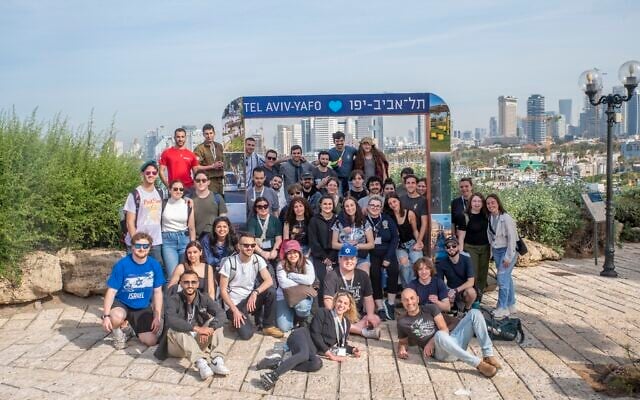Twenty-five years after its founding, Birthright Israel has become a rite of passage for Diaspora Jewry, bringing over 900,000 young adults from 70 countries on its iconic free 10-day visit to Israel.
But when Birthright first announced in 1999 that it was going to offer free trips to Israel for young Jews 18 and over, most people didn’t get it.
“People thought that it was a ridiculous idea from the get-go,” Birthright CEO Gidi Mark told The Times of Israel. “Why were we giving out free trips? What kind of educational impact could we have? There were a lot of questions and a lot of criticism.”
After a quarter century, most Jews now get it: As many as 20 percent of American Jews aged 18–46 have participated in Birthright, and nearly 30% of Jewish parents had at least one child participate, according to a 2020 Pew Research survey.
Birthright Israel is now a powerful presence in the Jewish world, particularly in the United States, where an estimated 70-80% of participants are based.
It’s an experience that many call life-changing and a wake-up call for Jewish identity, even as detractors criticize it for failing to promote a more nuanced narrative of Israel’s history.
What is clear is that the program has far-reaching impacts on Diaspora Jewry.
“We have conducted dozens of studies and written nearly 100 papers and reports, and the data shows it very clearly,” said Leonard Saxe, head of Brandeis University’s Cohen Center for Modern Jewish Studies, who has been researching the impact of the trip since its founding, through Birthright funding. “The simple summary is that Birthright has an enormous impact on participants in both the short term and the long term.”
A long-term longitudinal study conducted by the center shows that the resonance of a Birthright trip can still be measured 20 years after one has completed the program.
“The experience puts people’s entire lives on a different trajectory of engagement with the Jewish people and Israel, particularly for those who marry Jewish,” said Saxe.


